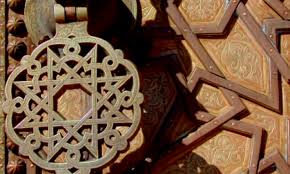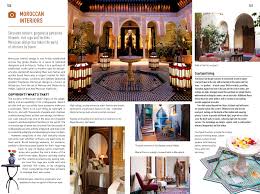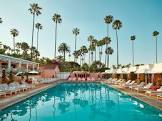The Allure of Moroccan Culture
When one thinks of Morocco, images of vibrant souks, intricate architecture, and the aroma of exotic spices immediately come to mind. This North African country has long captivated travellers with its rich history, diverse landscapes, and warm hospitality.
A Mosaic of Influences
Located at the crossroads of Africa, Europe, and the Middle East, Morocco boasts a cultural tapestry woven from Berber, Arab, and European influences. This unique blend is evident in everything from the traditional music and dance to the colourful handicrafts and mouth-watering cuisine.
The Enchanting Cities
From the bustling medinas of Marrakech and Fes to the coastal charm of Essaouira and Casablanca’s cosmopolitan vibe, Moroccan cities are a feast for the senses. Lose yourself in the labyrinthine streets lined with ornate riads, visit ancient palaces and mosques, or simply sip mint tea at a local café while watching the world go by.
Natural Wonders
Beyond its vibrant cities, Morocco’s natural beauty is equally mesmerising. The snow-capped Atlas Mountains offer breathtaking trekking opportunities, while the Sahara Desert beckons with its endless dunes and starlit nights. Along the coast, pristine beaches invite relaxation and water sports enthusiasts alike.
Hospitality and Tradition
Central to Moroccan culture is the concept of hospitality—known as “l’hospitalité marocaine.” Visitors are welcomed with open arms and treated to sumptuous meals featuring tagines, couscous, and pastries sweetened with honey. Traditional ceremonies like mint tea rituals and hammam baths offer a glimpse into everyday life in Morocco.
Preserving Heritage
Efforts to preserve Morocco’s rich heritage are evident in initiatives to safeguard historic sites such as the medina of Chefchaouen or restore ancient kasbahs like Ait Ben Haddou. Artisans continue age-old traditions in pottery-making, carpet-weaving, and metalwork—ensuring that Morocco’s craftsmanship endures for generations to come.
Plan Your Moroccan Adventure
Whether you’re drawn to explore Marrakech’s souks or trek through the High Atlas Mountains, Morocco offers a wealth of experiences for every traveller. Immerse yourself in this captivating culture where tradition meets modernity against a backdrop of stunning landscapes.
“Discovering Morocco’s Must-See Destinations: A Tourist’s Guide”
3. “Safety in Morocco: What Tourists Should Know Before
- What is Moroccan cuisine known for?
- What are the top tourist attractions in Morocco?
- Is Morocco safe for tourists to visit?
- What is the best time of year to visit Morocco?
- What are some cultural customs and traditions in Morocco?
- Do I need a visa to travel to Morocco?
What is Moroccan cuisine known for?
Moroccan cuisine is renowned for its bold flavours, aromatic spices, and diverse influences that reflect the country’s rich culinary heritage. From the iconic tagines simmered with tender meats, vegetables, and dried fruits to the fluffy couscous delicately steamed and served with a variety of savoury toppings, Moroccan dishes are a delightful fusion of sweet and savoury flavours. The use of ingredients like saffron, cumin, cinnamon, and preserved lemons adds depth to the dishes, while traditional cooking methods such as slow-cooking in clay pots enhance the textures and meld the flavours together. With a balance of sweet and savoury notes in every bite, Moroccan cuisine offers a tantalising journey for the taste buds.
What are the top tourist attractions in Morocco?
Morocco boasts a diverse array of top tourist attractions that cater to every traveller’s interests. From the bustling souks and historic landmarks of Marrakech and Fes to the tranquil blue streets of Chefchaouen, each city offers a unique glimpse into Moroccan culture. Nature enthusiasts can explore the majestic Atlas Mountains, Sahara Desert, and coastal towns like Essaouira for outdoor adventures. Don’t miss iconic sites such as the ancient Roman ruins of Volubilis, the vibrant Jardin Majorelle in Marrakech, and the grand Hassan II Mosque in Casablanca. With its blend of history, architecture, natural beauty, and warm hospitality, Morocco promises an unforgettable travel experience for all who visit.
Is Morocco safe for tourists to visit?
Travellers often wonder, “Is Morocco safe for tourists to visit?” Morocco is generally considered a safe destination for tourists, with a well-established tourism industry and welcoming locals. Like any country, it is essential for visitors to exercise caution and be aware of their surroundings. By following common-sense safety measures, such as staying in well-known areas, respecting local customs, and keeping an eye on belongings, tourists can enjoy the beauty and hospitality that Morocco has to offer. It is always advisable to stay informed about current travel advisories and consult with local authorities for any specific concerns before embarking on your Moroccan adventure.
What is the best time of year to visit Morocco?
The best time of year to visit Morocco largely depends on your preferences and the experiences you seek. Generally, the spring months of March to May and the autumn months of September to November are considered ideal for exploring Morocco. During these seasons, the weather is pleasantly mild, making it perfect for sightseeing, hiking in the Atlas Mountains, or wandering through the bustling medinas without extreme heat or cold. Summer can be scorching in many parts of Morocco, particularly in the desert regions, while winter brings cooler temperatures and occasional rain. Ultimately, the best time to visit Morocco is when the weather aligns with your planned activities and desired travel experiences.
What are some cultural customs and traditions in Morocco?
Morocco is a country rich in cultural customs and traditions that reflect its diverse heritage. One of the most prominent customs in Moroccan culture is the importance placed on hospitality, where guests are warmly welcomed and treated with respect. Traditional ceremonies such as mint tea rituals and hammam baths offer insight into daily life practices. Additionally, Moroccan cuisine plays a significant role in social gatherings, with dishes like tagines and couscous symbolising the country’s culinary tradition. Festivals such as Eid al-Fitr and Mawlid al-Nabi are celebrated with fervour, showcasing the blend of religious and cultural practices that define Morocco’s vibrant tapestry of customs.
Do I need a visa to travel to Morocco?
Travellers frequently ask, “Do I need a visa to travel to Morocco?” The answer depends on your nationality. Citizens of many countries, including the UK, EU member states, the US, Canada, Australia, and New Zealand, can enter Morocco visa-free for stays of up to 90 days for tourism or business purposes. However, it is essential to check the specific visa requirements based on your passport before travelling to ensure a smooth entry into this enchanting North African country.




